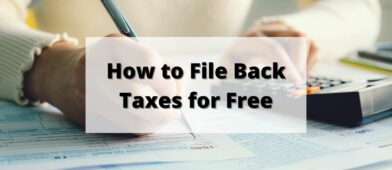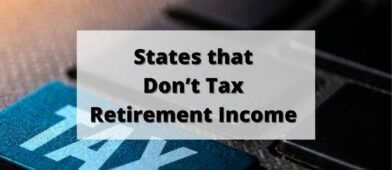Did you hear, perhaps on TikTok or elsewhere, about a “new” tax on money you receive through apps like Venmo, Cash App, Zelle, and PayPal? Is it true that if you get more than $600, you’ll have to report it to the IRS as income?
The short answer is that if it’s not income, you won’t owe taxes on it.
If your friend pays you back for drinks, it’s not income so you won’t owe taxes. If you sold something on Craigslist for less than what you paid for it, then it’s not income and you won’t owe taxes on that either.
If you run a business, sell products or services, then the new reporting requirement shouldn’t affect you either because you’re supposed to report your income. The new provision simply adds a reporting requirement for these newer vendors.
Table of Contents
Form 1099-K $600 Reporting Threshold
The American Rescue Plan Act was signed into law by President Biden earlier this year. It was the same law that created $1,400 stimulus checks, a $3,600 child tax credit, and other benefits that helped Americans during the pandemic.
There was one provision, which takes into effect on 1/1/2022, that requires electronic payment processors (technically called “third-party settlement organizations”) to issue a Form 1099-K for people who receive more than $600. Previously, payment processors were only required to issue a Form 1099-K if someone received $20,000 in aggregate payments and 200 transactions. It’s now just one requirement – $600.
Payment apps like Venmo, Zelle, Cash App, and PayPal would fall under that category.
Will You Owe Taxes?
The Form 1099-K is simply reports of transactions (it’s actually a summary) that happen and, unlike a Form W-2, doesn’t mean you owe any taxes at all. This is the IRS’s description of the form:
A Form 1099-K includes the gross amount of all reportable payment transactions. You will receive a Form 1099-K from each payment settlement entity from which you received payments in settlement of reportable payment transactions. A reportable payment transaction is defined as a payment card transaction or a third party network transaction.
- Payment card transaction means any transaction in which a payment card, or any account number or other identifying data associated with a payment card, is accepted as payment.
- Third party network transaction means any transaction that is settled through a third party payment network, but only after the total amount of such transactions exceeds $20,000 and the aggregate number of such transactions exceeds 200.
The gross amount of a reportable payment does not include any adjustments for credits, cash equivalents, discount amounts, fees, refunded amounts or any other amounts. The dollar amount of each transaction is determined on the date of the transaction.
I copied the page as it looks right now (in October 2021) so it still shows the old thresholds of $20,000 and 200 – as you can see, the form doesn’t contain enough information to indicate liability.
More to the point, here’s what that same page says about what to do with that information:
It is important that your business books and records reflect your business income, including any amounts that may be reported on Form 1099-K. You must report on your income tax return all income you receive from your business. In most cases, your business income will be in the form of cash, checks, and debit/credit card payments. Business income is generally referred to as gross receipts on income tax returns. Therefore, you should consider the amounts shown on Form 1099-K, along with all other amounts received, when calculating gross receipts for your income tax return.
Why $600?
That’s the same threshold for another IRS form – Form 1099-MISC. That’s the form for miscellaneous income. If you, as a business, pay an independent contractor more than $600 a year then you need to issue a Form 1099-MISC.
In a quirk that I discovered a few years ago, you don’t have to fill out a Form 1099-MISC if you paid that contractor with a third party settlement organization (TSPO) because, presumably, those payments would be captured by that TPSO’s Form 1099-K. I suppose they lowered the threshold of the 1099-K so that it would capture those earning less than $20,000 but more than the $600 Form 1099-MISC threshold.
We were paying affiliates for $5 Meal Plan with PayPal and so could avoid the headache of collecting tax identification numbers and issuing a ton of Form 1099-MISCs.
Who Must Report Income?
If you generate a profit, you should report that income and pay taxes on it. In many cases, you won’t receive a form (let’s say you flip furniture for a profit and it’s all cash), but you’re still obligated to pay taxes.
If you run a business and collect revenue using those apps, you’ll have to document your income and expenses and pay taxes on the profits. You would’ve reported that income anyway – so the change in the reporting threshold doesn’t affect that.
What You Need To Do Now
But don’t be worried that this new form generates an automatic tax liability – it doesn’t.
You won’t have to automatically pay taxes on all the money you received through Venmo or the Cash App but this does increase the importance of putting in useful notes on transactions.
This is probably most important for large transactions like splitting a beach vacation rental or something similar. The IRS is unlikely to chase you for your half of lunch, unless it looks like you’ve gone to lunch a few thousand times last year. 🙂
If you do get a large transaction, just make sure you have documentation just in case.
We will have to see how the IRS uses the new information in the form. This could be a gentle nudge to people who are underpaying taxes. It could be that the IRS will now scrutinize every last penny. It’s hard to say but my bet is that the vast majority of these app users won’t be affected.
There’s been enough lead time on this new rule that tax preparation software packages will have this covered next year.



